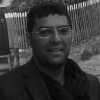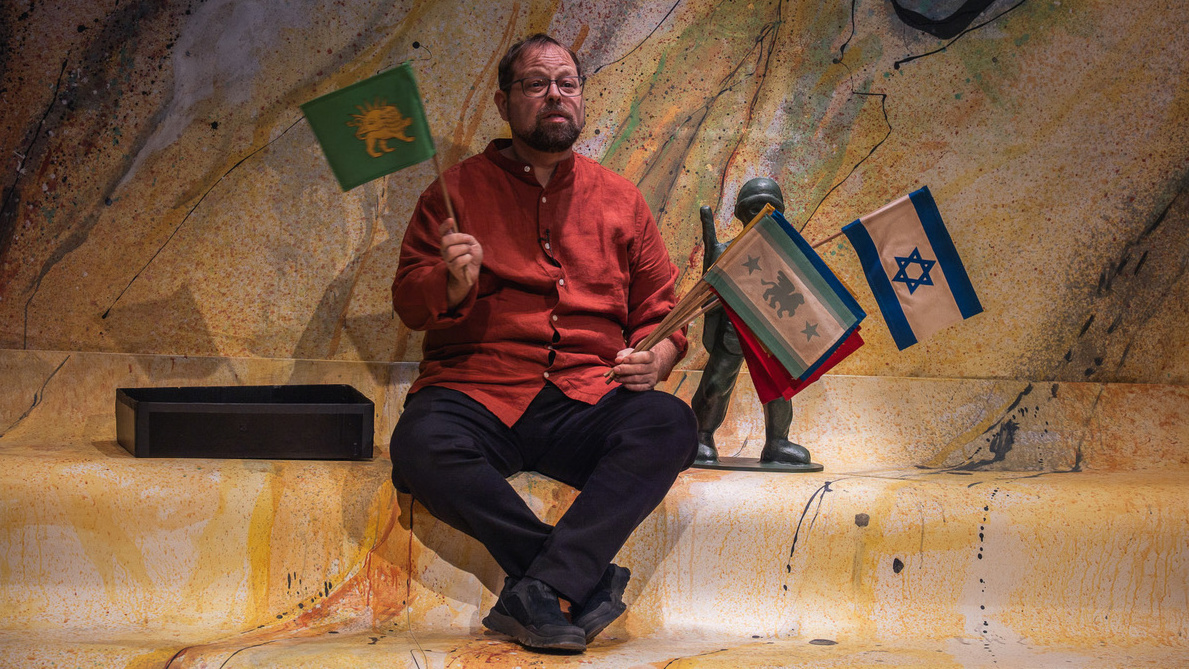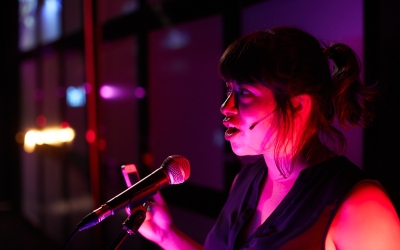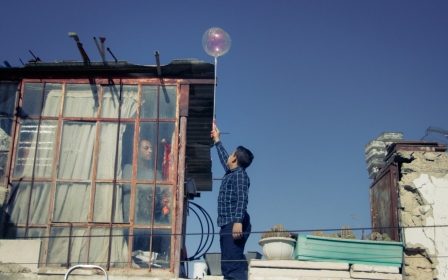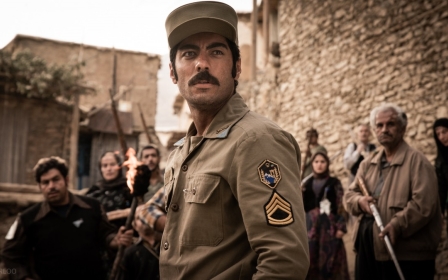Edinburgh fringe festival struggles to give voice to the marginalised
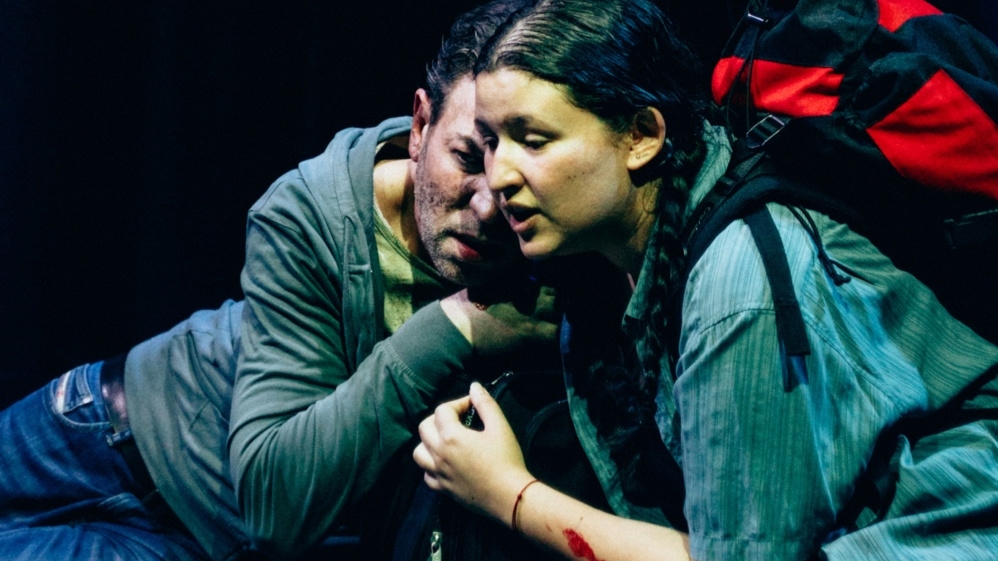
The Edinburgh fringe festival began in 1947, on the margins of the city's International Festival: Theatre troupes that were not invited to perform staged their own event. Eleven years later, an organising body called the Festival Fringe Society was created. Its mandate was not to vet performances, but rather to allow anyone who could secure a venue the chance to participate.
Fringe thus became a unique arena for theatrical experimentation - a cultural landmark of Scotland, and a pilgrimage destination for English-speaking theatre troupes and comedians.
The atmosphere aims to allow those at the margins to take centre-stage and speak. But it also runs the risk of mainstreaming the marginal, in a manner whereby anyone on stage is empowered to speak for, appropriate, and/or silence those who remain at the margins.
A telling example from the festival's latest run, which wrapped up late last month, is the play Twenty People A Minute, set in a dystopian near-future wherein a fascist takeover results in those who do not fit being deported to a "waiting island". The story poignantly stages a "fight the system" motif, reminiscent at times of the cyberpunk genre. At the same time, the play gets hung up on identity politics, undermining its own message.
There are moments where the individual struggles of the characters take a more collective form, with actors dissolving into the chorus and then re-emerging - also a useful tool to stage many characters through a smaller cast. But this collectivity remains oblivious to the collectivities that are the actual targets of contemporary militarism and fascism.
Stay informed with MEE's newsletters
Sign up to get the latest alerts, insights and analysis, starting with Turkey Unpacked
The play considers the victims of fascism only inasmuch as they are westerners. The characters, though they embody identities historically targeted by the far right (a homosexual man, a woman and an army deserter - all European), occupy the position of victimhood at the expense of the silenced victims of the current wave of fascism.
Non-Europeans only feature in the play as a far and exotic backdrop for the deserting soldier who was disillusioned by militarism after serving in a foreign country, and for the woman whom the fascist regime intends to sell for slavery overseas. As a play about western subjects choosing to resist fascism, the play stands out; as a play about the victims of fascism, it is almost presumptuous in its oblivion to the real victims.
Stifling Palestinian voices
While the non-European victims of western militarism are absent in this play, they are summoned by the British army as a hologram in a screening of the 2018 film/virtual reality experience Home After War, as part of the events of "Army at the Fringe".
Of course, we generally only expect the army to engage in militaristic propaganda (sometimes with a human face), and western liberal theatre troupes to engage in liberal identity politics or wallowing in perceived victimhood.
This voice sets its own limits when it refuses to explore the prospect of dismantling the settler colony, and thus ending all the guilt-inducing violence
These dynamics are also evident in how the question of Palestine is obliquely presented in the festival. Israeli guilt over the occupation of the West Bank becomes the backdrop of Soldiers of Tomorrow. At a time when pro-Palestinian sentiments are being maligned and criminalised in the UK, this expression of settler and military guilt might be the only safe way to provide such an unflinching criticism of Israel and the occupation.
Yet, the structural and material conditions stifling the presence of Palestinian (or truly anti-Zionist) voices on the fringes, let alone in the mainstream, effectively means that the only voice that can embody this critical position is that of Israeli guilt. This voice sets its own limits when it refuses to explore the prospect of dismantling the settler colony, and thus ending all the guilt-inducing violence that is integral to the settler-colonial project.
In a very different way, Avital Ash's standup routine, Avital Ash Workshops Her Suicide Note, has a similar double effect that both embodies and erases the margins. Ash bravely and wittily pushes the limits of the mainstream by turning some of the taboos of modern society (such as sexual violence and mental health).
The performer, apparently struggling with her own suicidal thoughts, explores her complicated relationship with her mother, who killed herself. In the course of the performance, we learn that her mother "went to Israel to find herself, but instead she fell off the roof of a building". The story of an American Jew who tried to find herself by becoming a settler in Palestine, but who instead found nothing in the settler colony but disappointment and death, is indeed a story worth telling - but in this performance, it becomes nothing more than a backdrop and pretext for Ash's own suicidal depression.
Beyond liberal cliches
The issue here is not just the silencing of any story that might come off as a critique of the settler-colonial Jewish state, or even the shunning of the political; it is also the liberal individualism that limits the (otherwise witty and talented) performer to an appropriation of her mother's drama (and trauma) - and an erasure of any collective Jewish or Palestinian trauma. The performer becomes the victim of her mother's tragedy, and thus cannot retell the story of her mother except through the lens of her own victimisation.
This is not to say that identity politics operate throughout the festival as merely a trap that forestalls any further exploration of injustice. The skilful writing by Eve Leigh and brilliant staging by Debbie Hannan allows Salty Irina to take identity politics beyond liberal and individualistic cliches.
The play is set in an unnamed European city, where fascism is on the rise and incidents of anti-immigrant violence are becoming commonplace. In this atmosphere, two young protagonists - a half-Turkish woman and a white anarchist lesbian - become friends and eventually lovers. Together, they decide to infiltrate a right-wing festival in an attempt to identify the string-pullers behind the attacks.
The staging of identities is devoid of presumptions, revealing a poignant tension between the two heroines and the identities they personify. One character's confusion and misgivings about female homosexuality is counterpoised by the other's inability to fully grasp the experience of being mixed race in a European city.
The bare, round stage and minimalist mise-en-scene renders palpable their experience of being alone together. Their shared solitude intensifies as they infiltrate the festival grounds, finding themselves encircled by fascists (notably depicted without Manichean simplicity, a credit to the play). While their undercover investigation ultimately falters, a vital lesson is gleaned; they move on to join community defence committees to protect immigrant residences and businesses.
In a moving epilogue, one of the protagonists pronounces how they joined community defence committees to protect immigrant residences and businesses, and how politics is about consistently turning up for one.
In addition to its masterful staging and storytelling, this play is set apart by its final emphasis on the collective. As an audience, we leave with a mobilising message on communitarianism and political organising, and a rallying cry to stand for one another.
The views expressed in this article belong to the author and do not necessarily reflect the editorial policy of Middle East Eye.
Middle East Eye delivers independent and unrivalled coverage and analysis of the Middle East, North Africa and beyond. To learn more about republishing this content and the associated fees, please fill out this form. More about MEE can be found here.


